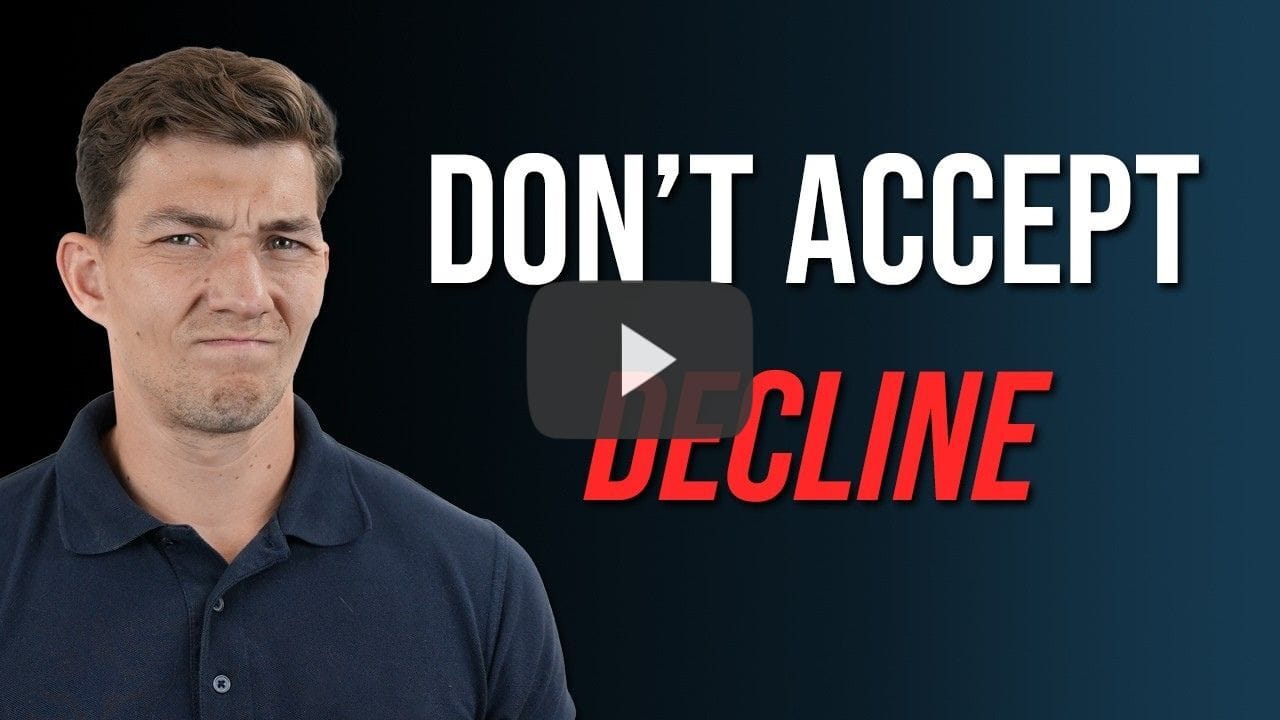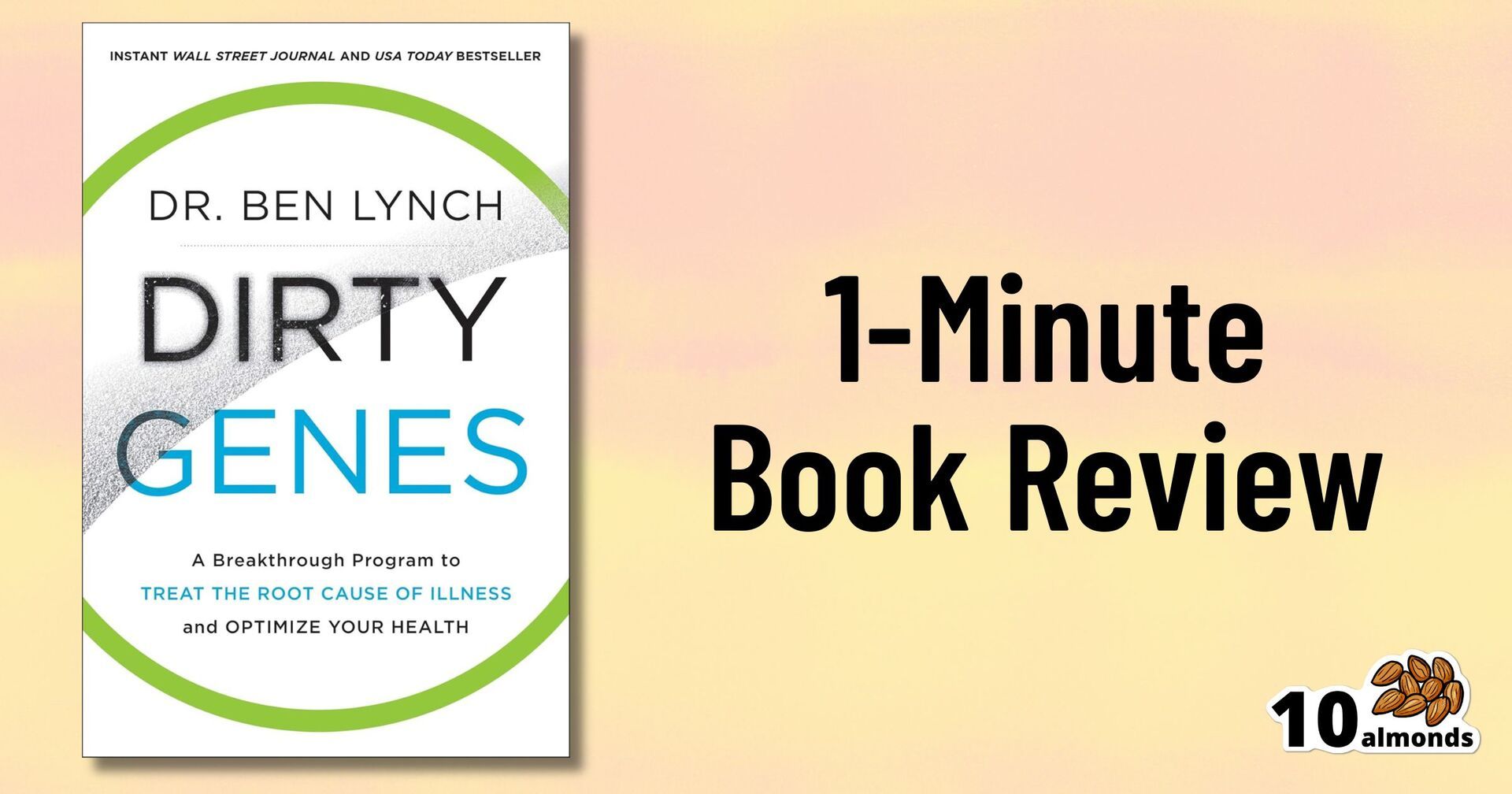Good morning 👋
For those who observe, today (from last night until tonight) is Yom Kippur, the Day of Atonement, a day of fasting and prayer.
For the rest of us, well, that’s a closed practice, but it can still be a good reminder to reflect on how our actions match up to our principles, and adjust and correct as we go.
See also: To Err Is Human; To Forgive, Healthy ← which also covers the topic of what we can do when we ourselves regret past mistakes, and want to make things right if we can, and deal with it healthily in any case.
In today’s email we cover how to tell good health sources from bad, why age-related decline is far from inevitable, and how to make the most of our genes.
Are your current exercise habits working for you? If so, great!
If not, here’s a quick (free) quiz that can get you started on a more useful track, because when it comes to optimizing exercise especially in the context of menopause, today’s sponsor trainwell are all about that. Click here to find a trainer near you!
Today’s Main Feature
How To Know Whom To Trust In The Health World
Including advice on seeing through the BS and the quacks:
Recommended Reading
❝Will My Boobs Sag If I Don’t Wear A Bra?❞
…and 5 other common questions about breasts and bras:
Policosanol: A Rival To Statins, Without The Side Effects?
Policosanol (which can be extracted from various sources, but is mostly made from sugar cane extract) is marketed as lipid-lowering agent for improving cholesterol levels, but its research history has not been without controversy:
Watch and Learn
If You've Been Told "It's Just Your Age", Watch This
Not only is decline not inevitable, but also, it is perfectly possible to get stronger and healthier at any age.
So says the science (studies with very compelling results cited):
Prefer text? The above video will take you to a 10almonds page with a text overview, as well as the video!
Our Sponsors Make This Publication Possible
Your body is changing. Your training should too.
Trainwell pairs you with a certified trainer who understands perimenopause and creates a strength plan designed for your body and your goals.
With trainwell you get:
Strength workouts designed for this stage of life
A trainer who understands perimenopause
A personalized plan to build and maintain muscle
Support to keep you consistent and motivated
Take the quiz to get matched with your trainer and start building your personalized plan.
Please do visit our sponsors—they help keep 10almonds free
This Or That?
Vote on Which is Healthier
Yesterday we asked you to choose between fava beans and soybeans—we picked the soy (click here to read about why), as did 44% of you!
Now for today’s choice:
Click on whichever you think is better for you!
One-Minute Book Review
Dirty Genes: A Revolutionary Approach to Health and Wellness Through Nutritional Genetics and Personalized Plans for a Happier, Healthier You – by Ben Lynch, ND
Even with a full set of interpreted data from a personal genomics service, understanding one’s own genetic information can be daunting. This book aims to make it less so, and give practical tools to help make the most of the genes we have.
The author explains the common functions of an assortment of important genes, and what they can do. With an emphasis on “can”, because every gene will have a lot more possibilities than actualities. This is partly because of the co-influencing factors of other genes, and partly because just because we have a certain gene, doesn’t mean it is expressed a certain way.
Genes are just the blueprints, after all, and the body can and often will disregard one set of instructions to do something else, especially in the case of genes with hormonally-mediated expression. In other words, those genes whereby they’ll have “if this, then that” instructions, that may be dependent on your levels of a given hormone; maybe estrogen, maybe a thyroid hormone, maybe cortisol, you get the idea. A wide array of lifestyle factors can also play a huge part. The gut microbiome can alter gene expression, too. And so on.
The main thrust of this book, therefore, is to understand some of the most important on/off switches to be aware of, and what to do in order to switch them the way you want.
Once you’ve got to grips with such mighty genes as the MTHFR and the DAO to name just a couple from the first “laundry list”, you’ll also dive into single nucleotide polymorphisms (SNPs), pronounced “snips” to their friends. These are specific bits of genes that can be a little bit different, and are often used as markers for traits/risks in health genomics. The same approach is then taken with regard to knowing what to do to make the most of benefits / minimize risks.
The style is lighter pop-science than you might be expecting, similar perhaps to what you read here at 10almonds, and the bibliography is a little more modest than you might expect too.
Bottom line: if you’re looking for deep science, this isn’t it. But if you’re looking for a practical guide to demystifying your genes, SNPs, and relevant epigenetic factors, then this book makes things very clear and comprehensible.
Penny For Your Thoughts?
What did you think of today's newsletter?
Wishing you the very best of health (and a meaningful Yom Kippur to any readers observing that today),
The 10almonds Team









